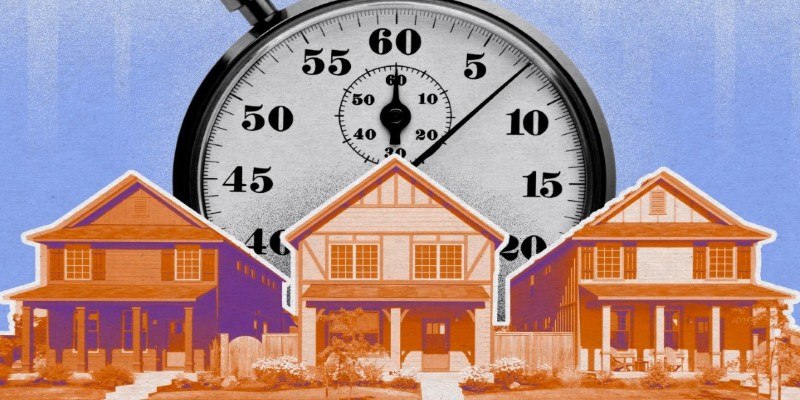Life has a way of throwing curveballs, especially when things seem secure. One moment, everything's in order—a steady job, mortgage payments handled, family at peace. Then comes an unexpected turn, and suddenly, keeping your home becomes a question mark. That's where Mortgage Protection Insurance (MPI) comes into play. It's a term people often hear when they take out a loan but don't always understand.
Unlike more familiar policies, MPI is narrowly focused—but that doesn't mean it's irrelevant. This article examines what MPI actually covers, how it compares to more flexible insurance options, and whether it aligns with a smart financial plan.
Understanding How Mortgage Protection Insurance Works?
Mortgage Protection Insurance is a type of life insurance that serves a specific purpose: to pay off your mortgage if you pass away during the term of the loan. Some policies go further, offering protection in cases of disability or job loss, though those features are optional and usually cost more.
What makes MPI unique is its structure. Instead of a set death benefit paid to your family, the payout goes straight to your mortgage lender. It’s generally offered as a decreasing term policy, meaning the benefit amount shrinks over time as you pay down your mortgage balance. This design mirrors your financial obligation and ensures the remaining loan amount is covered—but not more than that.
Because it focuses only on your mortgage, MPI doesn't cover broader household expenses, such as utilities or taxes, nor does it provide your family with flexibility on how the money is used. That can be a drawback for some, especially if their needs would extend beyond just the mortgage payment.
Another point in MPI's favor is its accessibility. Many policies don't require a medical exam, which can be a relief for people with health issues who may not qualify for traditional life insurance. However, this convenience often comes at a cost: premiums tend to be higher, and the overall value lower compared to standard term policies.
Who Should Consider Mortgage Protection Insurance?
Mortgage Protection Insurance isn’t right for everyone, but there are situations where it can make sense. If your main priority is making sure the house gets paid off no matter what happens to you, MPI can offer targeted peace of mind. It’s especially helpful for those with medical conditions that would make getting traditional insurance difficult or expensive.

However, for homeowners who are young, healthy, or already have some form of life insurance, MPI might be redundant or not cost-effective. If you’re already covered by a term life policy with a large enough benefit to pay off your mortgage and support your family, then adding MPI could mean paying for something you don’t really need.
Cost is another key factor. Since MPI often skips medical underwriting, premiums are typically higher for the amount of coverage you get. If you can qualify for a traditional term life policy, you’ll likely pay less for more flexible protection. Still, MPI can be a good fallback if you're locked out of other insurance options.
Another consideration is how far along you are in your mortgage. If you’re close to paying off your home, buying a policy to protect a nearly-cleared debt might not be worth it. However, if you've just taken out a long-term mortgage and want assurance that your family won't struggle to keep the home, MPI is worth considering.
At its best, MPI is a focused, simple way to secure your home under very specific conditions. It's not meant to replace a comprehensive financial plan but can play a small, helpful role within one.
Term Life Insurance vs. Mortgage Protection Insurance
A natural question many homeowners ask is whether they should opt for MPI or choose a more traditional term life insurance policy. Both aim to provide a financial safety net in case something happens, but they go about it in very different ways.
Term life insurance offers broader flexibility. You pick a coverage amount and term length, and if you pass away within that time, your beneficiaries get a lump sum. That money can be used for anything—mortgage payments, everyday living expenses, college funds, or debts. It’s customizable and often less expensive if you’re in good health.
MPI, on the other hand, offers limited scope. It's tied directly to your home loan and pays out only what's owed directly to the lender. Your family never sees the funds and can't choose how to use them. While that might sound rigid, it ensures that the roof over their heads is protected no matter what.
For people who qualify easily for term life insurance, that option tends to offer more value and versatility. But MPI has its place—especially for those who’ve been declined elsewhere, are late into their mortgage term, or simply want a no-fuss policy with fast approval.
How to Buy Mortgage Protection Insurance?
Buying Mortgage Protection Insurance starts with deciding whether you want it through your lender or a separate provider. Lenders may offer it during closing, but independent insurers often have more choices. Compare multiple quotes to see which policy fits your budget and coverage needs.

Check whether the policy includes only death benefits or adds disability and job loss coverage. Look at the term length, whether premiums are fixed, and how the benefit decreases over time. Read the fine print carefully so you know exactly what’s covered.
It's also important to know that MPI isn't required, even if a lender strongly recommends it. Take time to weigh it against a term life policy. The right option depends on your health, financial goals, and the level of flexibility you want your family to have with any potential payout.
Conclusion
Mortgage Protection Insurance is designed to pay off your home loan if you pass away, helping your family keep the house without added financial stress. It's a straightforward option, especially for those who may not qualify for traditional life insurance. While it doesn't offer much flexibility or the best value, it can serve a clear and focused need. Term life insurance, by contrast, gives your family more control and broader support. The best choice depends on your health, budget, and priorities, as well as how you want to protect your home and loved ones.












